PROVEDIt Database – Project Research Openness for Validation with Experimental Data PROVEDIt Database
Forensic mixture interpretation is an arduous task that requires experts in multifarious fields to create data analysis and inference solutions that are fit for purpose. The difficulty in translating these technologies to operations has been the gaps associated with model-building, testing and validation of these systems. To fill this gap we maintain the PROVEDIt Database. A fully open, free database of over 27,000 forensically relevant DNA mixtures.
Forensic DNA Interpretation Emerging Software
We develop award winning technologies and systems that enable the determination of a fullLR, which is a complete and overall evaluation of DNA data without application of signal thresholds, high-pass filters or subjective assessments of numbers of contributors. This includes the development of a software system, ValiDNA, engineered to work with most relevant propositions. The end goal is to provide full-weights-of-evidence using well characterized high fidelity data. We leverage our team’s track record in analytical chemistry and computer science and partner with experts in probability and statistics to build it.
Single-Cell and Precision Forensics Single-Cell Forensics
We are exploring various means to implement single-cell analysis and precision differential extractions into forensic science processes. This includes developing and coupling laboratory and interpretative approaches such that the core tenets of credibility, saliency and legitimacy are met. The end goal is to produce a single-cell pipeline – from extraction to report – founded on sound chemical, technological and probabilistic principles.
NGS and Forensics NGS and Forensics
We are testing methods by which to characterize and adopt next-generation sequencing (NGS) measurements in the forensic DNA paradigm. This includes coupling sensitive and robust laboratory approaches with sound interpretative strategies. The aim is to describe a full process that produces single-molecule DNA signal for forensic purposes.
Our Sponsors
This work is supported by NIJ2011-DN-BX-K558, NIJ2012-DN-BX-K050, NIJ2014-DN-BX-K026, NIJ2018-DN-BX-K0185, ARO RIF W911NF-14-C-0096 and NIST-60NANB19D140 awarded by the National Institute of Justice, Office of Justice Programs, U.S. Department of Justice and the Department of Defense, Army Research Office, Rapid Innovation Fund, and National Institute of Standards and Technology, U.S. Department of Commerce. Other support provided by Rutgers University Camden Vice Chancellor for Research.



